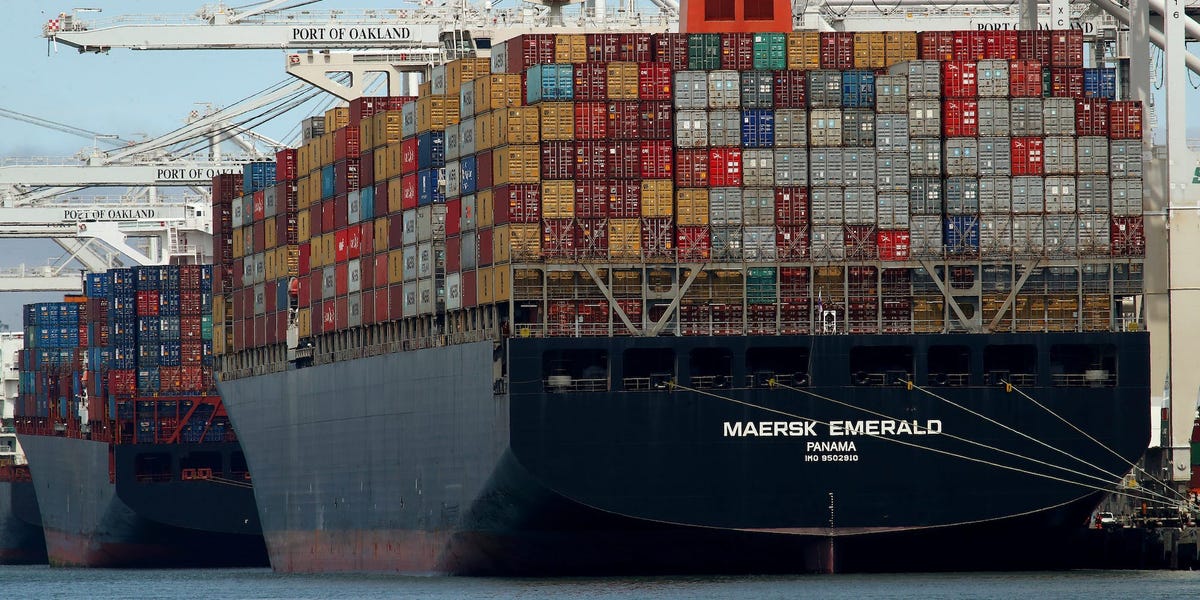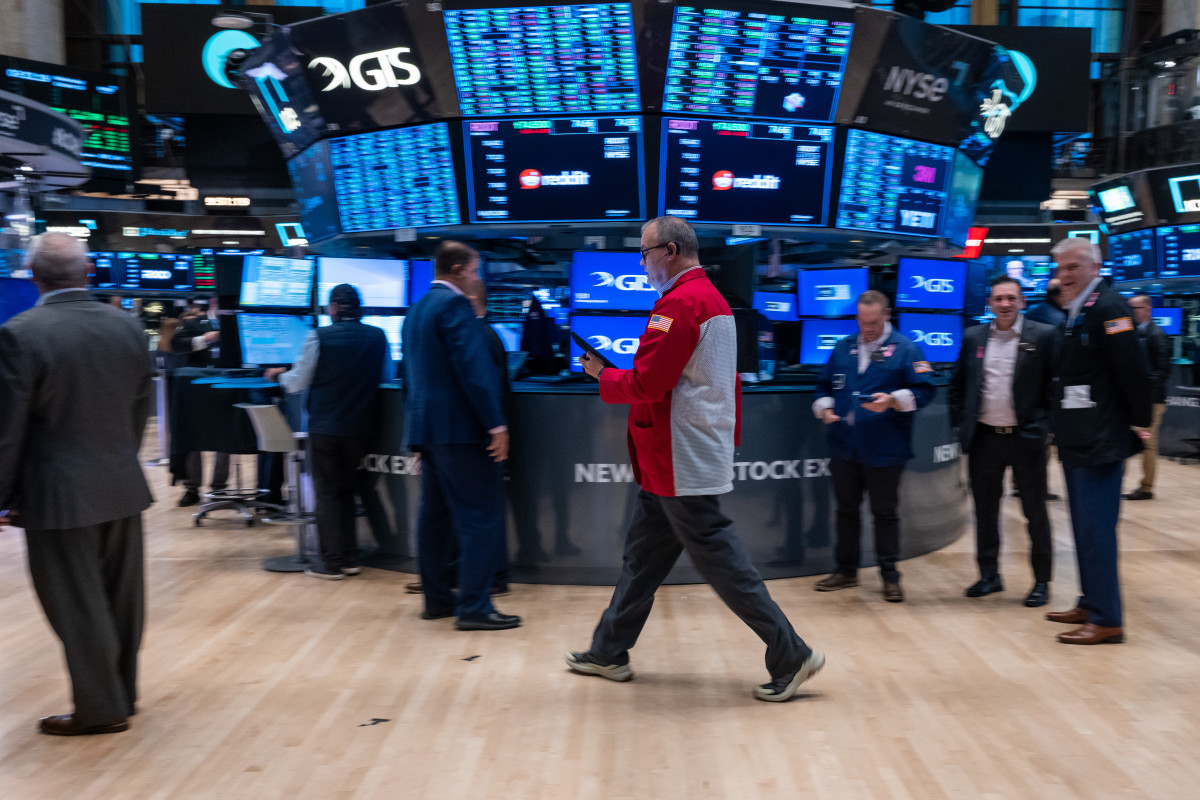- The striking of US port workers on the East and Gulf coast could impact certain stocks.
- Port workers are demanding a 61.5% raise and oppose the adoption of automation in new contract negotiations.
- Air cargo businesses like UPS and FedEx are set to benefit, while railroads and retailers face challenges.
Thanks for signing up!
Access your favorite topics in a personalized feed while you’re on the go.

The striking of US port workers across the East and Gulf coast on Tuesday is set to have big ramifications for the stock market if negotiations are drawn out.
Workers of the International Longshoremen’s Association saw their contract expire on Monday.
The workers are asking for a 61.5% pay raise over six years and strong language against adopting automation and AI technologies in their new contract.
According to Stifel analyst Bruce Chan, the ramifications of the port strike won’t be sizable unless the strike is drawn out for more than two weeks.
“The longer this goes, the more the impact scales, and really it starts to scale exponentially,” Chan told Yahoo Finance on Tuesday.
That could lead to a rebound in inflation for consumer goods, a shortage of certain consumable products, and ultimately job layoffs in certain industries, according to Chan.
“Where we’d probably be most worried is for critical process inventories. Unavailability there could cause shuttering of production plants, potentially furloughs and layoffs,” Chan said.
Detailed below are the biggest winners and losers of the situation, along with other companies that will be impacted to a lesser degree.
Biggest winners
The international air cargo business of UPS and FedEx is the clear winner of the ILA port strike, as high-value goods will be shifted to airfreight to avoid the backed-up ports.
“Air cargo essentially is the only clear beneficiary we can see in this situation. It’s essentially the only way to move products in country and bypass the ports,” Chan explained, adding that there isn’t much capacity to divert ships to ports on the West Coast or in Canada.
He added: “There really are not a whole lot of options in terms of a plan B here other than air cargo,” Chan said.
Investors are already catching on to this dynamic, with shares of UPS and FedEx both rising 6% in the past week.
“We think the most direct beneficiary of a strike situation would likely be international airfreight capacity providers like FedEx and UPS, which have significant operating leverage to Express operations,” Chan said in a note over the weekend.
Other winners
As companies seek alternative routes to transport their goods, logistic networks can see an increase in volumes.
Shares of C.H. Robinson Worldwide and Expeditors International of Washington have seen gains of 4% and 5% in the past week, respectively, as investors anticipate increased business due to the port strike.
Biggest losers
The biggest losers, so far, appear to be shipping container companies that are directly exposed to the port strike.
Shares of ZIM Integrated Shipping Services, Costamare, and Global Ship Lease dropped 7%, 2%, and 2% on Tuesday, respectively.
Ultimately, Chan sees the port strike lasting about two weeks, with a lot of it hinging on how the Biden administration responds.
“I think a lot is going to depend obviously on the political situation and the willingness of the Biden administration to intervene here, but our base case is about two weeks,” Chan told Yahoo Finance on Tuesday.
Biden, who is known to be very pro-union, has resisted calls to enact the Taft-Hartley Act, which would force port employees back to work while the negotiate a contract.
“There’s collective bargaining, and I don’t believe in Taft-Hartley,” Biden said on Monday.
Other losers
A lot of goods movers concentrated on the east coast could see decreased volumes as goods stop moving into the port.
That means railroads and trucking companies with significant exposure to the east coast could take a hit.
“With respect to the rails, there are clearly some near-term headwinds to both East Coast rails CSX and NSC,” Chan said, adding that West Coast railroad operators are unlikely to see a big benefit.
“We see this as a small headwind with no real winners among the rails,” Chan said.
Other potential losers, if the strike is drawn out for an extended period of time, are retailers like Walmart, Costco, Target, Home Depot, and Lowe’s, as they may struggle to replenish their shelves with certain goods.

















